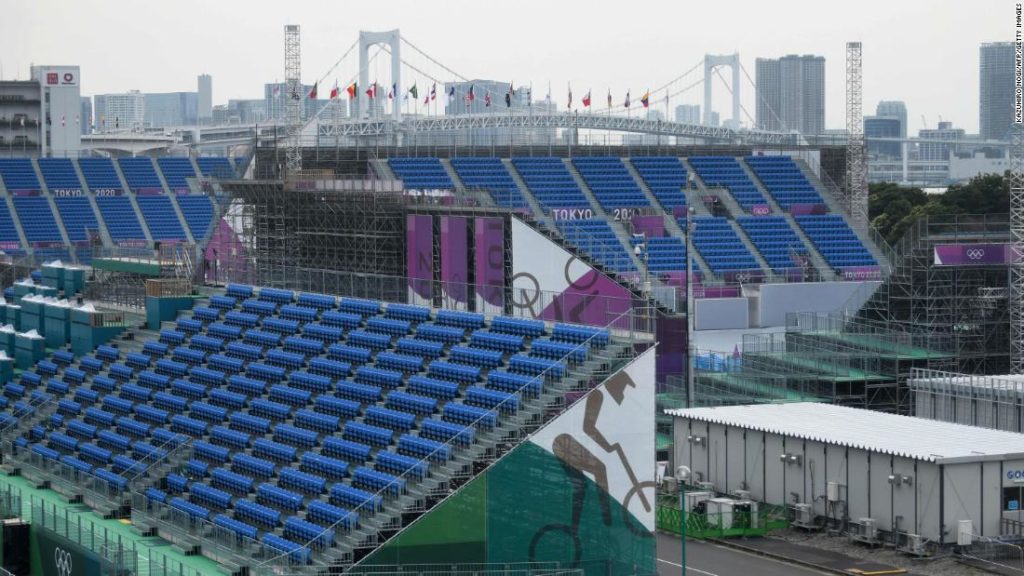Speaking at the start of the government’s Covid-19 task force meeting, Suga said he had decided to declare a new state of emergency for the capital from July 12 to August 22 — covering the 16 days of the embattled Games in its entirety.
“The number of infected cases in the area including Tokyo has been increasing since the end of last month,” Suga said. “The number of severe cases and bed occupancy rate continues to be on the low level, but considering the impact of variants, we need to enhance countermeasures so that the infection will not spread nationwide.”
Suga added that a ban on serving alcohol in restaurants will continue during the state of emergency.
The decision comes as media reports in the country said the general public was expected to be banned from the opening ceremony in two weeks time and as Tokyo reported 920 new infections for Wednesday — the highest daily caseload since the middle of May.
The state of emergency — the fourth for the Japanese capital since the pandemic began — will cover the entire period of the Olympics, which are scheduled to run from July 23 to August 8.
It has raised questions over whether domestic spectators will still be allowed at the Games. Organizers had already decided to ban overseas fans from the stands in March.
CNN has reached out to the Tokyo 2020 Olympic committee for comment.
But Nishimura said Thursday that under the state of emergency, venues in Tokyo and Okinawa will be limited to 5,000 people or 50% of capacity, with no spectators allowed at events that finish later than 9 p.m.
Japanese media Asahi Shimbun and Kyodo News reported that for the Games opening ceremony, which will be held July 23 and last beyond 9 p.m., only “special guests” will be allowed. They will include members of the International Olympic Committee (IOC), the Games’ sponsors and foreign dignitaries, the reports said.
It remains unclear if the rest of the Games will ban all spectators, or restrict the number of attendees to 5,000. An official decision is expected to be made at a meeting between the Tokyo government, the national government, the Tokyo 2020 organizers, and the IOC and International Paralympic Committee (IPC).
IOC President Thomas Bach landed in Tokyo on Thursday morning, and is observing a three-day self-isolation in his hotel.
The possible ban on spectators will not only come as a big disappointment for Japanese fans, but for some athletes as well.
Sport climber Akiyo Noguchi said she derives tremendous power from performing in front of a big crowd, and creating that motivation and energy will be harder without cheers from the bleachers.
“I feel very sad. I wanted to be in the Olympics because I wanted to show my best performance in front of my family and supporters, but this will not be in the form that I’ve been imagining,” she told CNN previously.
CNN’s Selina Wang contributed reporting.
You may also like
-
Super League: UEFA forced to drop disciplinary proceedings against remaining clubs
-
Simone Biles says she ‘should have quit way before Tokyo’
-
Kyrie Irving: NBA star the latest to withhold vaccination status
-
Roger Hunt: English football mourns death of Liverpool striker and World Cup winner
-
‘Every single time I lift the bar, I’m just lifting my country up’: Shiva Karout’s quest for powerlifting glory

